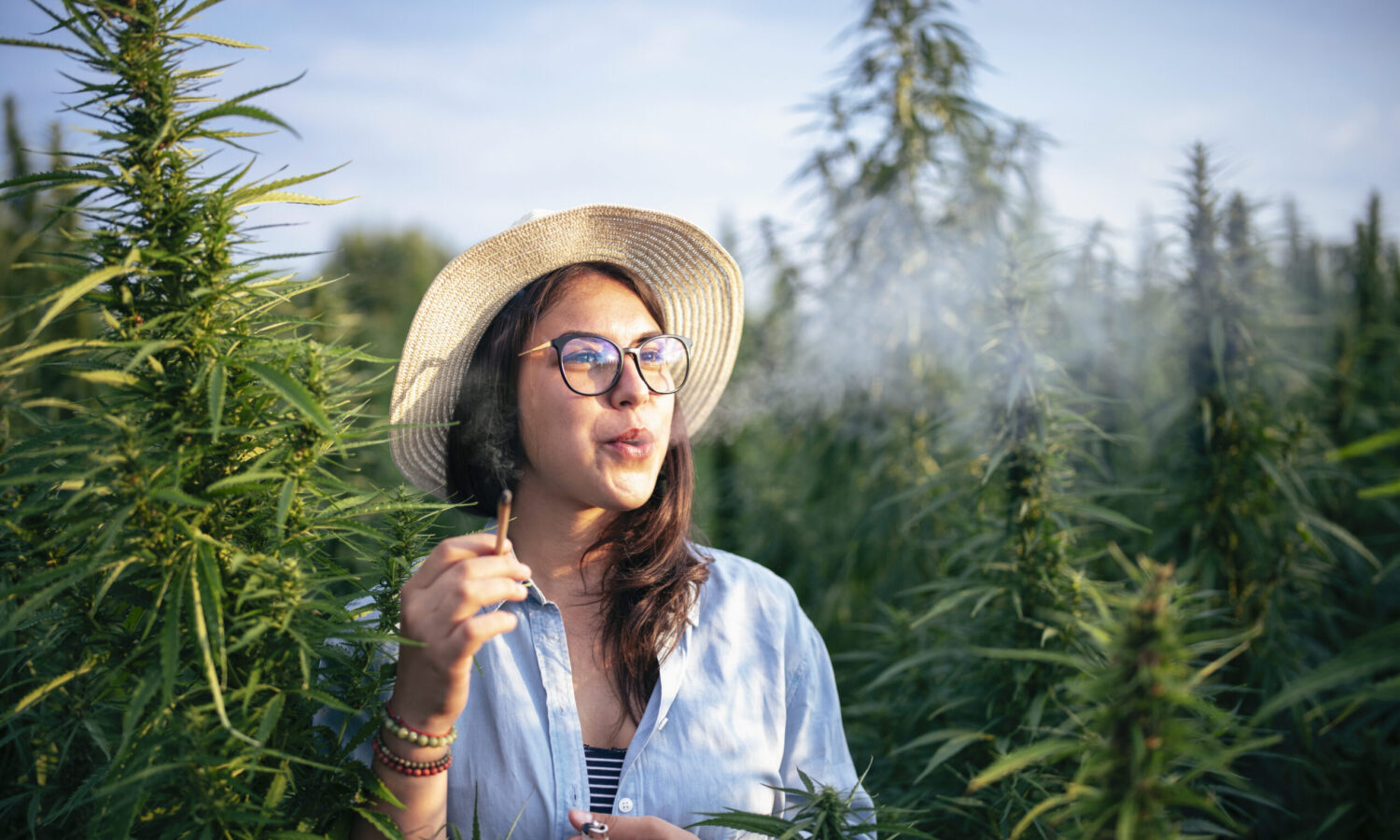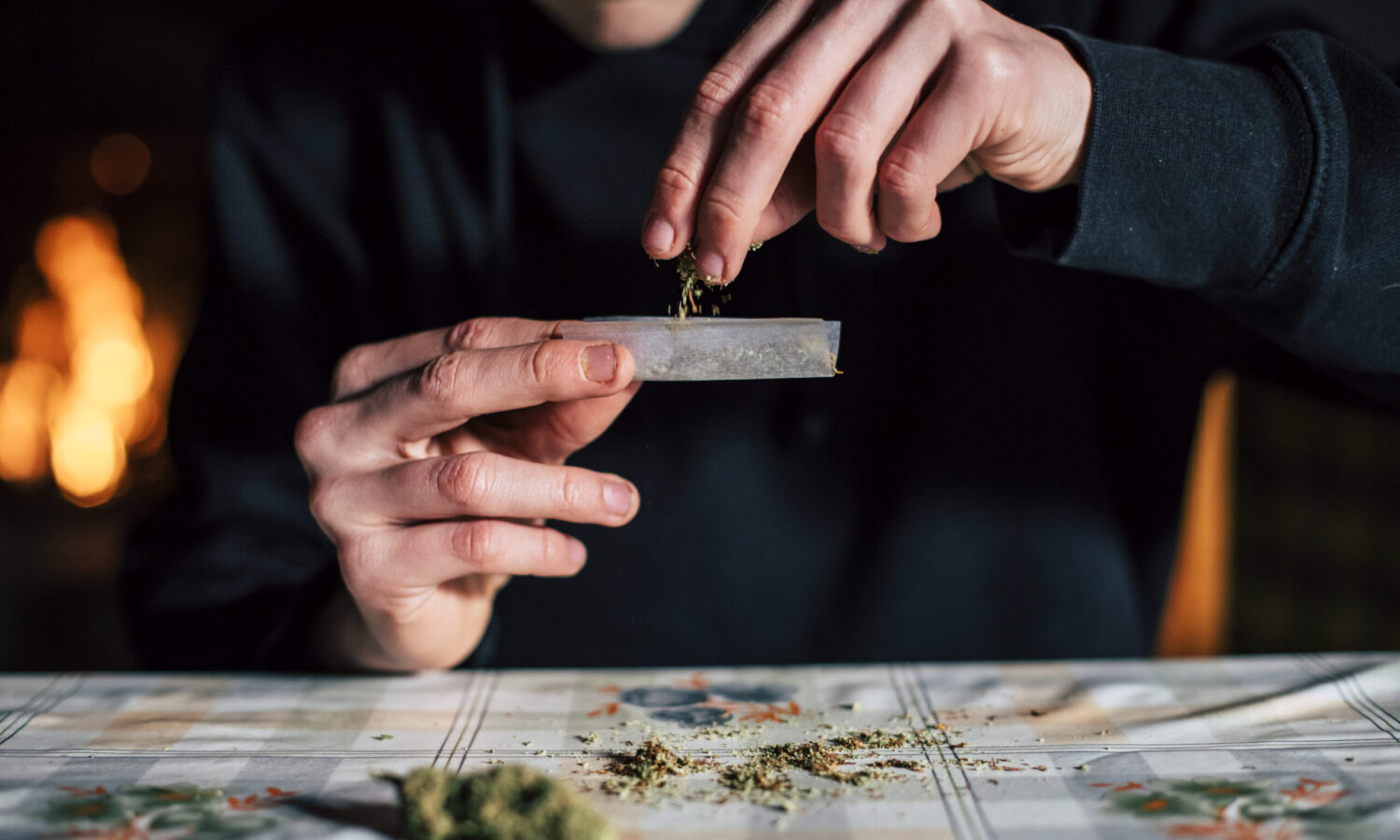
Federal court rules hemp-derived delta-8-THC is legal
On May 19, 2022, the United State Court of Appeals for the Ninth Circuit (9th Circuit) ruled in a landmark case on the legality of delta-8-tetrahydrocannabinol (delta-8-THC).
The 9th Circuit ruled in AK Futures LLC v. Boyd Street Distro, LLC that the plain and clear language of the Agricultural Improvement Act of 2018 (2018 Farm Bill) compelled the court to conclude that e-cigarette and vaping products, the Delta 8 THC are legal.
Photo by Olena Ruban/Getty Images
The 2018 Farm Bill legalized hemp derivatives and extracts that contain intoxicating cannabinoids like delta-8 THC
In the opinion, the court analyzed the text of the 2018 Farm Bill to determine whether hemp-derived delta-8-THC was lawful. The 2018 Farm Bill removed hemp from the Controlled Substances Act (CSA) definition of “marijuana” as well as tetrahydrocannabinols in hemp. The court then turned to the definition of “hemp”, which reads in full as follows:
The term “hemp” denotes the plant Cannabis sativa L. and any part of this plant, including its seeds and all derivatives, extracts, cannabinoids, isomers, acids, salts and salts of isomers, whether growing or not, with a delta -9 [THC] Concentration not exceeding 0.3 percent on a dry weight basis.
The court analyzed the wording of the 2018 Agriculture Act as follows:
Importantly, the only legally required metric to differentiate [CSA] Controlled marijuana from legal hemp is the delta-9 THC concentration level. In addition, the definition extends beyond the plant to “all derivatives, extracts, [and] cannabinoids[.] This apparently extends to downstream products and substances as long as their delta-9 THC concentration does not exceed the legal threshold[.] Certainly, a substance must be a derivative, extract, cannabinoid, or any of the other enumerated terms to fall within the legal definition of the 2018 Farm Bill. However, these terms do not impose any meaningful limitations.
The court concluded that the 2018 Farm Bill specifically included all hemp derivatives, including psychoactive substances such as delta-8-THC, in the definition of hemp and therefore these compounds are lawful and distinct from “marijuana” under federal law. While this case dealt with delta-8-THC to the exclusion of other hemp-derived cannabinoids, its rationale certainly suggests that hemp-derived cannabinoids and their downstream products such as CBN enjoy the same federal legality as delta-8-THC.
Context is key
It is important to note that this decision is only binding in states within the 9th Circuit’s jurisdiction, including Alaska, Arizona, California, Hawaii, Idaho, Montana, Nevada, Oregon and Washington. While this decision is likely to be persuasive in other regions, it is not dispositive and other circles may differ from the 9th Circle’s analysis.
RELATED: FDA sets targets for Delta-8
While proponents of products containing delta-8-THC are rightly pleased with this result, the facts of the case are important when planning operations under AK Futures vs. Boyd Street Distro. Here is how the court worded the lawsuit:
AK Futures LLC, a manufacturer of popular e-cigarette and e-cigarette products, filed a trademark and copyright infringement lawsuit against Boyd Street Distro, LLC, a downtown Los Angeles retail store and wholesaler of smoking products. According to AK Futures, Boyd Street has been selling counterfeit versions of its “Cake” brand e-cigarette and vaping products that contain [delta-8 THC] a chemical compound derived from hemp. Boyd Street alleges that AK Futures does not have protectable trademarks for its Cake products because delta-8-THC remains illegal under federal law.
AK Futures sought to uphold a district court injunction to stop Boyd Street from continuing to infringe on its intellectual property. An injunction is a court order that prohibits (prohibits) a person from beginning or continuing an act that threatens the legal rights of another person. The district court prohibited Boyd Street from selling merchandise bearing imitations of either of AK Futures’ Cake logos or copying the Cake trademark, or from “reproducing, distributing . . . , or View” copies of the copyrighted Cake design.
 Via Getty Images/ArtistGNDphotography
Via Getty Images/ArtistGNDphotography
In order to obtain an injunction, a party must demonstrate, in part, that it is likely to succeed in the matter. Boyd Street did not claim to sell counterfeit Cake products, instead arguing that AK futures could not own a valid trademark since Delta-8 was illegal under federal law. The court ruled that “AK Futures is likely to succeed with its trademark claim because its delta-8 THC products are not prohibited by federal law and therefore may support a valid trademark.” To arrive at that conclusion, the court found first establishes that AK Futures has legally used the Cake trademark in trading.
RELATED: What it’s like to get high from delta-8 THC versus regular THC
The court then considered whether the use was lawful. Only lawful use of a mark can establish a mark priority. Because the United States Patent and Trademark Office (USPTO) is a federal agency, use must comply with federal law. This has prevented many cannabis brands from obtaining federal trademark protection. To determine whether trademark protection extended to AK Futures products, the court had to consider whether the Farm Bill 2018 legalized Delta-8 vapor products.
FDA voltage
An important part of this analysis is that these were smokable Delta-8 products that contained neither tobacco nor nicotine. In this case, it wasn’t about delta-8-THC in consumable forms like gummies or tinctures. Earlier this month, the Food and Drug Administration (FDA) issued warning letters to companies that sell Delta-8 products. For a full analysis of the letters see my recent blog post. The FDA does not necessarily have jurisdiction over smokable hemp products as long as they do not contain nicotine or tobacco and as long as they are not marketed as drugs by claims made by the manufacturer or distributor.
The 9th Circuit’s determination that smokable Delta-8 products are legal may not necessarily apply to ingestible products containing Delta-8 THC, as these products are regulated by the FDA and the FDA has determined that the addition of Delta-8-THC in food or dietary supplements a violation of the Food, Drug and Cosmetics Act (FDCA). This is true even though hemp-derived delta-8-THC is not a controlled substance. There are many things that are not controlled substances that are not allowed to be added to food, for example possession of bleach is legal but adding it to food is illegal. The CSA exemption does not equate to FDCA compliance.
Accuracy of Claims
The court also noted that its analysis focused on the veracity of AK Futures’ claims that its products contained hemp derivatives and contained no more than 0.3% THC:
The conclusion that AK Futures’ delta-8 THC products are legal necessarily depends on the accuracy of the company’s claim that these products contain no more than 0.3 percent delta-9 THC. Proving that AK Futures’ products contain more than the allowable threshold of delta-9-THC would void AK Futures’ claim for trademark protection.
Rejected arguments that the Farm Bill did not legalize hemp-derived delta-8-THC
Boyd Street made two arguments which were rejected by the court:
- The DEA interpreted the Farm Bill as not applying to Delta-8 because the method of making the connection; and
- Congress never intended to legalize psychoactive substances like delta-8-THC.
Boyd Street cited the DEA’s statement that accompanied its hemp-related regulation that “[a]All synthetically derived tetrahydrocannabinols remain Schedule I controlled substances,” claiming that Delta-8 is synthetic as it is refined through a manufacturing process. The court did not have to consider the agency’s interpretation because the text of the 2018 Farm Bill was clear and did not restrict the manufacture of hemp derivatives, extracts and cannabinoids. The court wrote that “the origin of the product – not the manufacturing process – is the determining factor in determining whether a product is synthetic.”
 Photo by Westend61/Getty
Photo by Westend61/Getty
Boyd Street also argued that with the 2018 Farm Bill, Congress did not intend to legalize psychoactive substances like Delta-8, but wanted to legalize truly “industrial” hemp. The 2014 Agriculture Act, which legalized the cultivation of hemp for research purposes, specifically used the term “industrial hemp” to define cannabis with less than 0.3% THC. The 2018 Farm Bill dropped the term “industrial” and defined hemp simply as “hemp.” Boyd Street pointed to testimony in congressional transcripts from lawmakers using the term “industrial hemp,” but the court did not translate that limitation into the unambiguous language of the 2018 Farm Bill and was therefore unconvinced.
Conclusion
The AK Futures case clarifies the legality of Delta-8 THC vapor products and e-cigarettes under federal law. It shows that the federal courts are not reading restrictions on psychoactive hemp derivatives that are not in the 2018 Farm Bill. Regardless of how you feel about delta-8-THC, this is a significant case in the history of cannabis legalization.
Daniel Shortt is a Seattle, Washington-based corporate and regulatory attorney who works extensively with entrepreneurs in the cannabis industry. You can reach him at info@gl-lg.com or (206) 430-1336. This article originally appeared on the Green Light Law Group and has been republished with permission.

Post a comment: